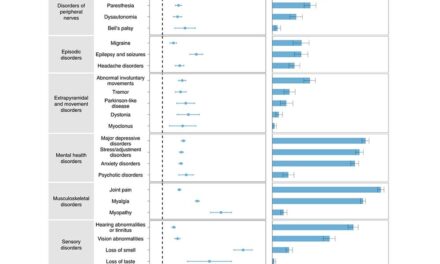Researchers Shed Light on the Negative Consequences of Weight Cycling and the Challenges of Breaking Free
In a groundbreaking qualitative study, researchers delve into the detrimental interpersonal and psychological effects of yo-yo dieting, shedding light on the pervasive pattern of unintentional weight gain and loss. The study, led by Lynsey Romo, an associate professor of communication at North Carolina State University, underscores the dangers of yo-yo dieting, emphasizing its insidious nature and the formidable challenge individuals face in escaping its cycle.
Yo-Yo Dieting in American Culture: “Yo-yo dieting,” characterized by the recurrent cycle of gaining and losing weight, has become deeply ingrained in American culture. Fad diets, quick-fix plans, and weight-loss drugs often lure individuals seeking to attain societal beauty ideals, creating a cycle that poses significant risks to mental and physical health.
Study Methodology: The research involved in-depth interviews with 36 adults who had experienced weight cycling, where they lost and regained more than 11 pounds. The objective was to understand the reasons behind entering the yo-yo dieting cycle and explore the challenges, if any, individuals faced in breaking free.
Social Pressures and Unhealthy Behaviors: All participants expressed a desire to lose weight primarily due to social stigma and comparisons with celebrities or peers. Participants engaged in various weight-loss strategies, leading to initial success but eventual regain. The cycle induced feelings of shame and further internalization of weight-related stigma, driving individuals to increasingly extreme behaviors.
Obsession and Unhealthy Practices: The study revealed that participants became obsessed with their weight, affecting their personal and social lives. Many resorted to disordered weight management behaviors, such as binge eating, restrictive eating, calorie counting, stress over food choices, reliance on quick fixes, overexercising, and avoidance of social events involving food.
Strategies for Breaking the Cycle: Individuals who successfully challenged the cycle embraced healthier perspectives, focusing on overall health rather than the scale number. They found joy in exercising and adopted balanced eating habits, moving away from obsessive monitoring and control. However, these success stories were in the minority, with most participants remaining trapped in the cycle.
Challenges to Breaking Free: The study identified ingrained thought patterns, societal expectations, toxic diet culture, and pervasive weight stigma as significant hurdles to breaking free from the yo-yo dieting cycle. Despite the desire to escape, participants faced persistent challenges, making it difficult to avoid a lifelong struggle with weight.
Recommendations and Takeaways: The researchers strongly recommend that, unless medically necessary, individuals should avoid dieting. The study emphasizes the lasting harm caused by weight cycling, leading to shame, body dissatisfaction, stress, and preoccupation with weight-related concerns. Focusing on health rather than societal standards, embracing exercise for enjoyment, and adopting healthy eating behaviors emerged as effective strategies for those who successfully challenged the cycle.
Conclusion: The study concludes that yo-yo dieting is a detrimental practice with far-reaching consequences. Its findings underscore the importance of avoiding dieting unless medically required and highlight the urgent need to address societal norms, toxic diet culture, and weight stigma to break the cycle and foster a healthier relationship with body image and food.












